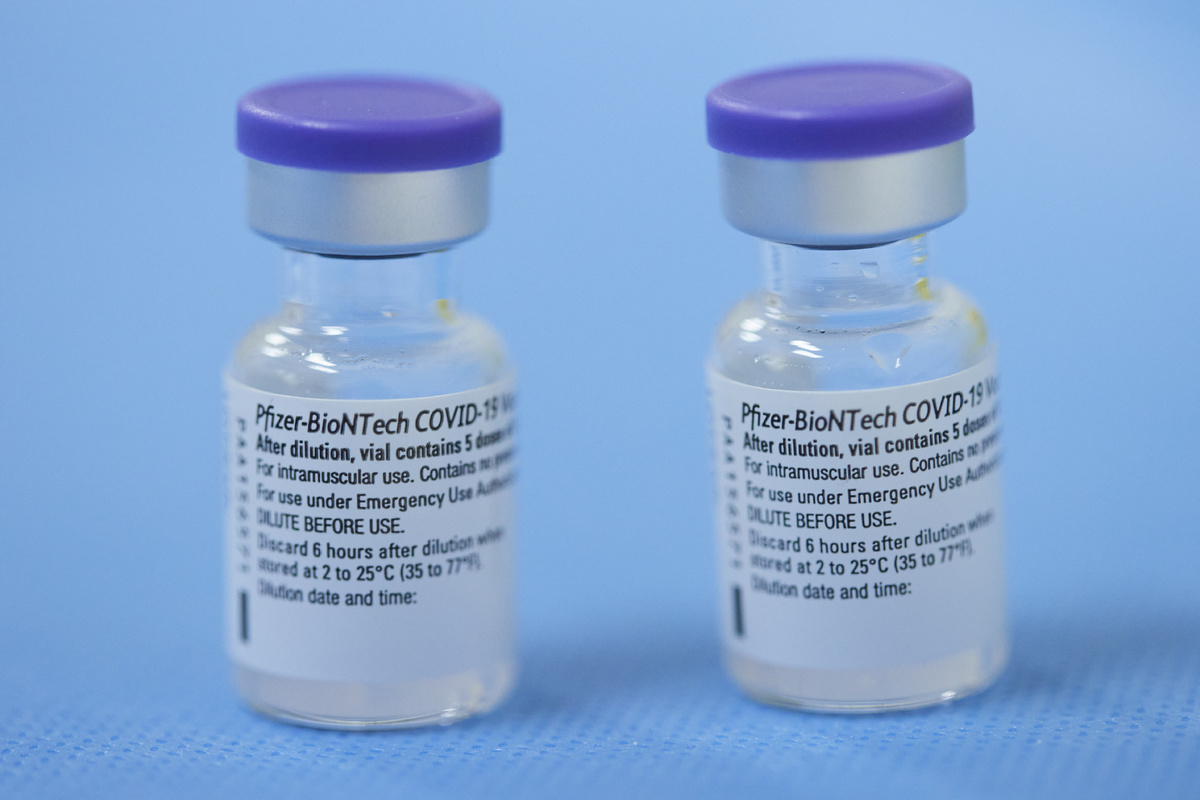UK to test alternating doses from Pfizer and Oxford uni
By ANGUS McNEICE in London | China Daily Global | Updated: 2021-02-05 10:27

The United Kingdom has launched a clinical trial to determine whether alternating doses of the Oxford and Pfizer vaccines can provide effective protection against the novel coronavirus, in a move that could offer greater flexibility for vaccine roll out.
In the government-funded study, some volunteers will receive a first dose of the vaccine from the University of Oxford and AstraZeneca, followed by a second dose of shot from Pfizer and BioNTech. Other participants will receive the jabs in reverse order.
Researchers will then test antibody levels to ascertain whether the mixed treatments provoke an immune response that is weaker, stronger, or on par with conventional dosing.
Having the option to mix treatments would be beneficial during times when certain vaccines are in short supply.
"Given the inevitable challenges of immunizing large numbers of the population against COVID-19 and potential global supply constraints, there are definite advantages to having data that could support a more flexible immunization program, if needed," said Jonathan Van-Tam, deputy chief medical officer for England.
Several studies into inoculations for other diseases, including HIV, malaria, and tuberculosis, have provided evidence that alternating vaccine candidates can provoke an immune response that is as good if not greater than relying on a sole treatment.
The method is known as heterologous prime-boosting, and there is reason to believe it may work in the case of the Pfizer and Oxford treatments because, while they use very different means, both inoculations have a similar goal.
The two vaccines help the immune system recognize and disrupt the same protein that the novel coronavirus relies upon to gain entry into cells.
"The antigen used in all of the vaccines currently licensed in the UK is exactly the same spike protein, so the immune system will recognize it and can be expected to respond at least as well if a different product is used for boosting as it would if the same vaccine as in the original dose were used," said Peter English, who is a consultant in communicable disease control for Public Health England and who is not involved in the study.
The government said it will not implement such a dosing policy if the results suggest it would result in lower levels of protection. But there is a chance that the approach could provoke a stronger immune response.
"It is also even possible that by combining vaccines, the immune response could be enhanced giving even higher antibody levels that last longer," said Van-Tam. "Unless this is evaluated in a clinical trial, we just won't know."
The 7-million-pound ($9.6 million) study will be run by the UK National Immunization Schedule Evaluation Consortium and involve 800 volunteers.
The trial will also see how dosing intervals impact effectiveness, with some participants receiving a second dose after 28 days and others after 12 weeks.
























